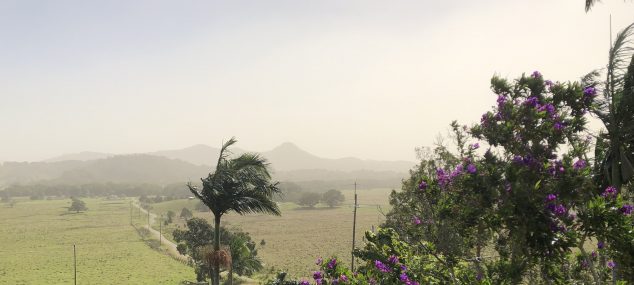
North Coast Public Health Unit is urging people with respiratory conditions to take caution, with high air pollution levels in some areas of Northern NSW this week as a result of high winds transporting dust and smoke from hazard reduction burns into the area.
Assistant Director of North Coast Public Health, Greg Bell, said children, older adults and people with heart and lung conditions are most susceptible to the effects of air pollution and excessive smoke.
“Dust and smoke may aggravate existing heart and lung conditions and cause irritated eyes, coughing and wheezing,” Mr Bell said.
“If you have asthma you should follow your Asthma Action Plan and take your relieving medication where necessary, and if symptoms get worse, seek medical advice.
"When it is particularly dusty or smoky, stay indoors with doors and windows closed and follow your health plan.
“To minimise any negative effects from air pollution, people should also consider avoiding vigorous exercise and seek out air-conditioned premises”.
“It’s also a good idea for people with known health conditions to check the NSW Department of Planning, Industry and Environment website for air quality information and the NSW Rural Fire Service website for regular updates on planned burns,” Mr Bell said.
In case of emergency always remember to dial triple zero.
For more information about bushfire smoke / dust and health, visit the NSW Health website:
http://www.health.nsw.gov.au/environment/factsheets/Pages/bushfire-smoke.aspx and
https://www.health.nsw.gov.au/environment/factsheets/Pages/dust-storms.aspx
For information on air quality, visit the NSW Department of Planning, Industry and Environment website:
https://www.dpie.nsw.gov.au/air-quality/current-air-quality
For more informration on hazard reduction burns and bushfires, visit the Rural Fire Service website: https://www.rfs.nsw.gov.au/fire-information/fires-near-me